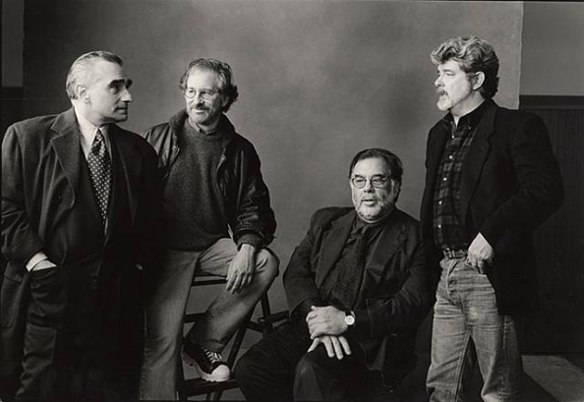
Tumultuous? Absolutely. But, in the end, Don Draper and Peggy Olson had a deep creative friendship.
In this day and age, we have the ability to share our thoughts and creative endeavors with a vast number of people and receive their input almost instantly. It’s one of the benefits of technology that links us together with whomever we choose, whenever we choose to do so. And while it’s great to get a wide variety of responses to whatever you’re putting out there within a short period of time, there often tends to be a lack of depth and serious thought behind this process. “Easy come, easy go,” as they say.
History is rich with creative friendships — relationships that involve two or more people who engage each other in ways that support, challenge, provoke, and ultimately champion one other’s work. Literary titans Edith Wharton and Henry James; 20th Century musical geniuses Aaron Copland and Leonard Bernstein; the 70s Movie Brats, including Francis Coppola, George Lucas, Steven Spielberg, and Martin Scorsese. What made these old-school relationships so resonant was a commitment on the part of those involved to give their undivided attention to their friends’ work; to take things in and really let them marinate; and to provide honest criticism along with overall support and enthusiasm.

The Movie Brats: Martin Scorsese, Steven Spielberg, Francis Ford Coppola, and George Lucas.
The wonderful website Brain Pickings featured just such a relationship earlier this year, in the form of Charles Darwin’s correspondence with his best friend, Joseph Dalton Hooker (a well-regarded botanist and explorer). It’s a touching and inspiring look into a deep, respectful friendship between two men who pushed each other to live up to (and beyond) their potential. And it’s just the sort of thing that we are more or less losing as we become enmeshed in the multitasked, short-form lives that are becoming the norm. What we gain in productivity and instant information, we lose in deep connections and serious contemplation. I urge you to read the Brain Pickings post not only because the correspondence is illuminating and lovely, but also to witness the very tangible benefits of true, creative friendship.
I’m not saying that we should give up our technology for writing letters with quills by candlelight. But there’s a strong case to be made for cultivating relationships that operate in a long-form manner; relationships where real investments are made in one another’s creative work and the ultimate gift is one of sacrifice — that is, the sacrifice of our time, which has become a precious commodity these days.
So, take a moment to look at your relationships and ask yourself, “Who do I share my creative life with? Whose honest feedback do I seek out, knowing that they’re championing me to go even further than I may believe I’m capable of?” If you already have someone that fits that bill — my goodness, hang on tight and nurture that friendship. Acknowledge that person for the place that they hold in your life, and make sure that you are doing likewise for them.
And for those of you who don’t currently have that person in your life, I realize that it’s not as simple as stumbling upon someone on the street to be your creative confidante. It can be a real challenge to find someone who you trust and respect. Here are some tips for finding this special someone.
- Clarify for yourself what kind of person you would like to attract.
- Think about who in your life right now might fit this bill — maybe someone you respect but aren’t super close with.
- Cast your net wide. Consider friends of your friends whose work you admire; people who seem to share the same creative values as you; someone you took a class with who did or said something you really respected.
- Take a risk and reach out to someone. Ask them to coffee or lunch. Be willing to share with them what you are working on and see if perhaps they are also looking for someone to bounce ideas off of or share early drafts of work with.
That last part — reaching out — can seem a little scary, I know. But, really, what do you have to lose, especially when you have so much to gain? I really feel that the rewards are worth the effort. In the end, a creative friendship is not just something that can enrich your work (though that is a HUGE benefit, believe me), it’s something that can also seriously enrich your life.
